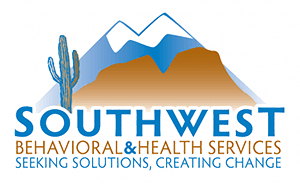I Think My Child Is Using Drugs
 Suspecting or realizing that your child is using drugs or drinking can be overwhelming. There may be feelings of anger, frustration, betrayal and sadness. Here you will find resources to help you navigate through the process of assessing your child's possible drug use and how to go about getting the appropriate help they need.
Suspecting or realizing that your child is using drugs or drinking can be overwhelming. There may be feelings of anger, frustration, betrayal and sadness. Here you will find resources to help you navigate through the process of assessing your child's possible drug use and how to go about getting the appropriate help they need.
Suspecting Drug & Alcohol Use
If you suspect your child is using drugs, it can be difficult to get past a flat–out denial of drug or alcohol use from your kid. Below are some tips to talking with your child about your suspicions and overcoming roadblocks.
Be firm and loving |
Talk to you child in a loving manner, but remain firm in your disapproval of your child using drugs or alcohol. |
Remain calm |
It's harder to storm off or fight with a calm person than it is with somebody who is yelling at you. |
Do you have proof? |
If you have objective proof that your kid is not being truthful, bring it up, but try not to make it a triumph or contest. It's not about winning the argument or proving your kid lied to you, it's about keeping your child safe. |
Verify their claims |
Think beforehand of how you could verify their claims and bring them up. For example, if your child says they spent the day at a friend's house, tell them you may need to call their friend's mom to check on the story. |
Focus on the behavior |
By focusing on the behavior and what worries you, you are less likely to put your child on the defensive. Don't make it sound like you think your child is a bad person because they have tried drugs or alcohol, but rather that you are concerned for their well being. |
If your child flips the conversation |
If the conversation is flipped to make it sound like you don't trust your child, reply that “drug and alcohol use is serious and you're concerned for their health and safety and that you're willing to have some tough conversations to make sure they’re safe.” |
Dig deeper |
Instead of going straight to reprimanding your kid for lying, try to find out more about why they lied in the first place. Keep talking and let your child know that you will do everything available to keep them safe and away from drugs. |
Consider granting immunity |
Some young people get caught in a web of lies and can't get out. You can sometimes help by offering a chance to clear the record. Tell them that there will be no immediate consequences if they tell the truth, but there will be serious consequences moving forward. |
Set clear consequences |
Ensure that you set clear consequences so that your child knows what will happen if they do use drugs or alcohol. |
Reward future honesty |
If your kid opens up to you and tells you the truth about something that perhaps isn't so easy for them, be sure to tell them that you're proud of them for doing so. |
Interventions & Treatment
Below are helpful guides that allow you to find out more about intervention and treatment. Select Find Treatment to locate a treatment facility near you.
Intervention Guide: (http://drugfreeazkids.org/sites/default/files/uploads/Intervention_Guide.pdf)
Treatment Guide: (http://drugfreeazkids.org/sites/default/files/uploads/Treatment_Guide.pdf)
Find Treatment: (http://drugfreeazkids.org/findtreatment)
Getting Help
You don't have to do this alone. Telling others about your child’s drug use can be scary. You may feel guilty, ashamed, fear you're going to embarrass your child, or believe that you can "deal with it" on your own. But you can't handle this problem by yourself and you shouldn't have to. It's important to get outside help. Your child's drug use can be an act of teenage rebellion, a sign of full–fledged addiction, or anything in between. What you need help with first is identifying the actual problem. Professionals can use these methods to help you pinpoint the issue you're dealing with. These methods will also help you decide the best course of action for your child:
Drug and Alcohol Assessment
This is a phone interview or face–to–face meeting between the user and a doctor or counselor. It is usually conducted at or by a treatment facility.
Evaluation or Screening
This is an extensive assessment in which a user stays at a treatment center for a few days to be observed by experts. He or she also takes part in a series of tests during this time.
Drug Testing
While home drug tests can be unreliable, having a doctor perform a drug test can be a helpful tool. However, be aware that teens find all sorts of ways to beat these tests and even professional tests can be inaccurate.
Source: Partnership for Drug-Free Kids


